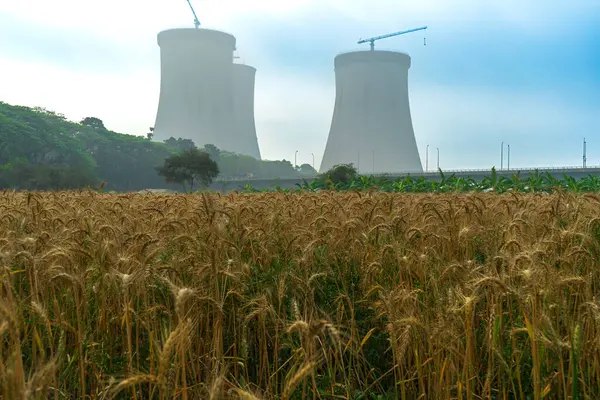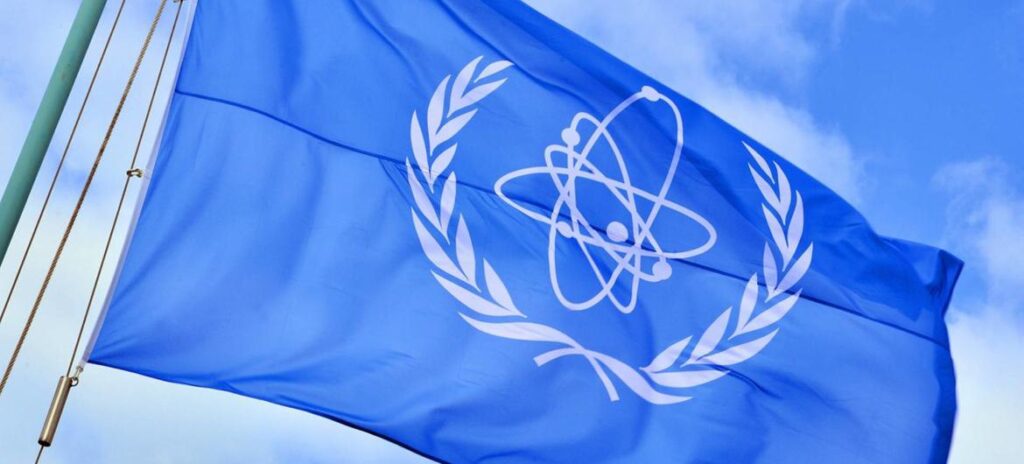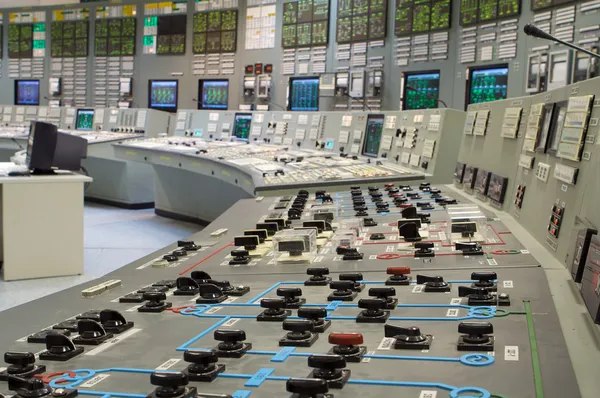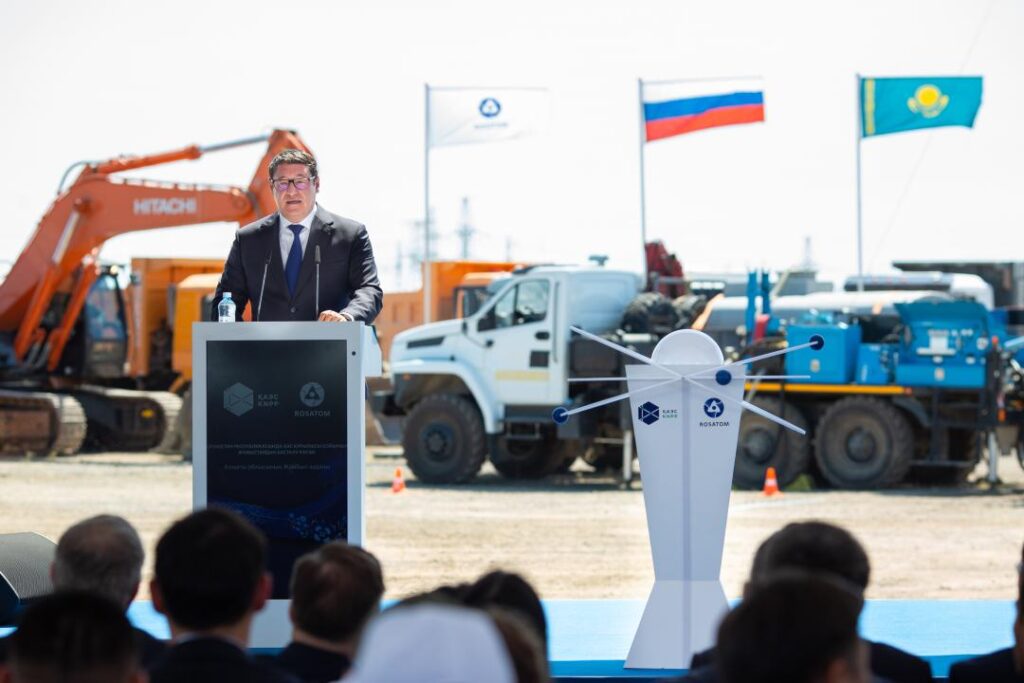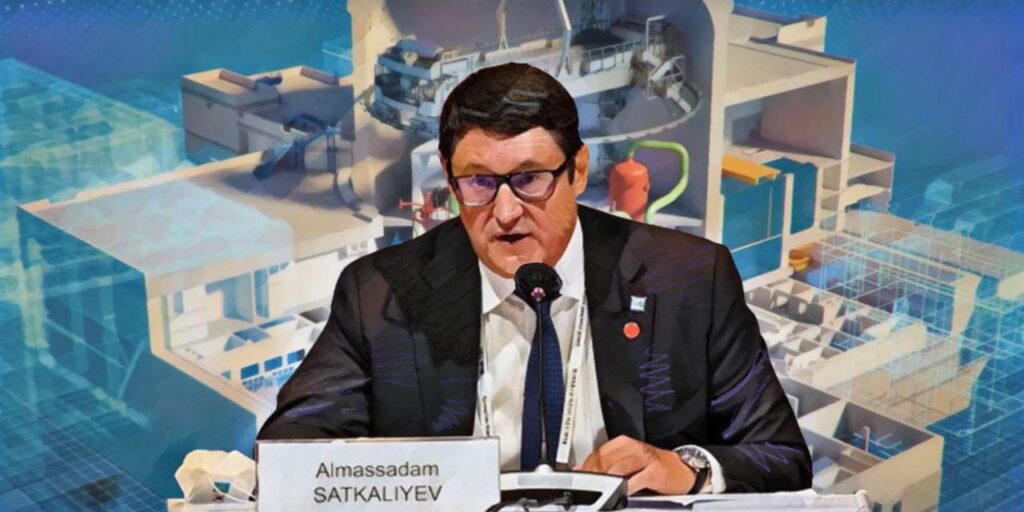More than 71 percent of voters have approved the October 6 referendum for constructing Kazakhstan’s first nuclear power plant (NPP). Turnout was over 63 percent, easily surpassing the 50-percent barrier for validation. This result closely tracks the results of a telephone survey conducted by the Democracy Institute on September 30 and released by the Kazakhstan Institute for Strategic Studies. That survey found 73 percent of those asked to favor construction of a nuclear power plant. It also found that 62 percent of respondents intended to vote, not far from the actual participation rate.
President Kassym-Jomart Tokayev had announced the referendum initiative in a message to the public in September 2023. In that address, he emphasized that Kazakhstan, as the world’s largest producer of uranium, should also have its own nuclear-power generation capabilities. Following this announcement, a series of meetings between representatives of various government agencies and the public were organized across all regions of the country. During these meetings, the plans for constructing an NPP were discussed in detail, with an emphasis on the potential benefits of nuclear energy for Kazakhstan’s energy independence.
Kazakhstan has held a significant position in the global nuclear-energy market since the late 2000s, accounting for approximately 40 percent of global uranium production. Despite this advantageous position, the country faces severe electricity shortages, which are projected to worsen by 2025, especially in the rapidly growing southern regions. Reliance on aging thermal power plants, many of which are equipped with components that have been in service for over 50 years, has only exacerbated the problem. Frequent energy shortages in multiple regions have left citizens without heat during harsh winter conditions, often with temperatures dropping well below zero.
The proposed site for the nuclear power plant is in Ulken, located in the Almaty region. The shortlist of potential builders for the NPP includes companies from China, South Korea, Russia, France, and the United States. The inclusion of companies from multiple countries is aimed at ensuring competitive bidding and securing the best possible technology for the project. Tokayev has indicated a personal preference for an “international consortium made up of global companies equipped with cutting-edge technologies.”
Developing an NPP will help the country to achieve energy independence and meet carbon-neutrality goals. Without an NPP, rolling blackouts will be necessary and dependence on electricity imports from Russia will continue. However, the legacy of the Semipalatinsk test site looms large, creating a challenging decision for Kazakh citizens.
Kazakhstan’s nuclear history spans from Soviet-era testing to present-day energy challenges. The Semipalatinsk nuclear test site, established in 1947, was where the Soviet Union conducted over 468 nuclear tests, leaving long-lasting environmental and health impacts on the local population. The fallout from these tests has burdened the national health-care system for decades, exacerbated by nuclear fallout from Chinese testing at Lop Nor.
In response to these consequences, then-President Nursultan Nazarbayev closed the Semipalatinsk site in 1991, and by 1994, Kazakhstan had relinquished its nuclear arsenal and became a non-nuclear state. Nazarbayev’s rise to power in the late 1980s was partly fuelled by the transnational “Nevada-Semei” movement, which mobilized Kazakhstani civil society against Soviet nuclear policies.
The national health-care delivery system has been burdened for decades with the effects of nuclear fallout on the population, stemming from the above-ground testing at Semipalatinsk (Semei) during the Soviet era, not to mention fallout blown by winds from Chinese nuclear testing at their own Lop Nor site. In 1991, then-President Nursultan Nazarbayev officially closed the Semipalatinsk site; by 1994, Kazakhstan had relinquished its nuclear arsenal and become a non-nuclear state.
In the run-up to the referendum just held, various media platforms enabled the government to address fears related to nuclear accidents and waste disposal. The public discourse drew comparisons to other countries that have successfully integrated nuclear power. It argued for the feasibility and safety of the proposed plant while addressing fears about nuclear accidents and waste management. The issue is critical for Kazakhstan’s energy security and has the side benefits of promoting job creation and foreign investment.
In the lead-up to the recent referendum, various media platforms were used to address public concerns about nuclear accidents and waste disposal. The government highlighted the safety and feasibility of the proposed plant, drawing comparisons to other countries that have successfully integrated nuclear power. By emphasizing stringent safety standards and international oversight, the campaign helped alleviate fears and promote the benefits of nuclear energy, such as job creation, foreign investment, and improved energy security.
Initially, public opinion was evenly split between supporters and opponents, but by highlighting the need to address energy shortages, reduce dependence on hydrocarbon fuels, and leverage nuclear power for a sustainable economy, the campaign successfully swayed public sentiment. The promotion of benefits such as job creation, foreign investment, and improved energy security further bolstered public support, making the referendum outcome relatively predictable.

